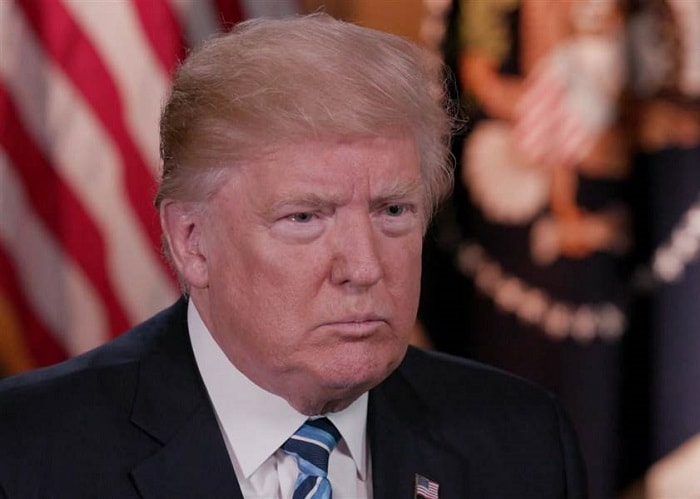World
Asian Stocks Drop After Trump Announces China Tariff Hike

Asian stocks fell sharply Friday morning following U.S. President Donald Trump’s announcement that he will hike tariffs on some 300 billion dollars’ worth of Chinese goods to 10 per cent starting on Sept. 1.
Japan’s benchmark Nikkei 225 Stock Average lost 2.36 per cent at the end of the morning session, while Hong Kong’s Hang Seng Index plunged 2.25 per cent.
The Shanghai Composite Index dropped 1.58 per cent in the morning, while China’s CSI 300 Index declined 1.74 per cent.
The U.S. measures are on top of the 25-per-cent tariffs that have already been imposed incrementally over the past year on 250 billion dollars’ worth of Chinese products.
When they take effect, all Chinese goods coming into the U.S. will be subject to punitive tariffs.
Trump’s announcement on Thursday followed talks between the world’s two largest economies in Shanghai this week, the first time negotiators met since the president and his Chinese counterpart Xi Jinping agreed at the G20 in late June in Japan to pause further tariff hikes and return to the table. The pause was short-lived.
Speaking to reporters, Trump said the new tariffs could go “beyond 25 per cent,” though he was not currently planning to do so. He stressed the September 1 deadline was fixed and not a negotiating ploy.
“If they don’t want to trade with us, that’s fine with me, it would save a lot of money,” Trump said outside the White House, as he was set to depart for a campaign rally. He also accused China of devaluing its currency.
China’s top diplomat said the fresh tariffs were not “constructive” in resolving the U.S.-China trade war.
“Increasing tariffs is definitely not a constructive measure to solve economic and trade friction,” Foreign Minister Wang Yi told reporters on the sidelines of an ASEAN summit in Bangkok on Friday.
In announcing the new tariffs, Trump said China had retreated from its pledge to increase purchases of U.S. agricultural products and reneged on a promise to stop the sale of Fentanyl, a synthetic opioid, to the U.S.
The comments were an admission that key concessions Trump had touted had failed to materialize, and the announcement further indicated the trade war was not abating.
“Until such time as there is a deal, we’ll be taxing them,” the president said, adding that he was not concerned by a decline on U.S. markets after his latest tariff announcement.
On Thursday, U.S. stocks slipped as news of the new tariffs, which were not widely expected, broke with the S&P 500 index closing down nearly 1 per cent.
Trump insisted he had no intention of cancelling future rounds of trade talks, saying he looked forward to “positive dialogue” with China.
At a rally in Ohio in the evening, Trump also said he believed China was hoping to draw out the talks, hoping he would not win reelection in 2020.
“They are praying. They would like to see a new president in a year-and-a-half so they can continue to rip off the United States like they have been doing for the last 25 years,” he told a cheering crowd.
The tariff announcement comes just a day after the U.S. Federal Reserve cut interest rates, citing a global slowdown and the uncertainties of the trade war, in particular the tariffs.
Trump has been agitating for lower rates and speculation immediately mounted that the central bank may be forced to lower rates further to counteract the tariffs.
Farmers, a key group in Trump’s base of supporters, have been taking hits in the trade war.
The president has unleashed this year a 16-billion-dollar aid plan for the agricultural sector, coming on top of a 12-billion-dollar plan the previous year.
China is also believed to be taking steps to bolster its own economy, which has shown signs of slowing.
Trump has railed against China’s alleged unfair trade practices, including blocking market access, and problems of intellectual property theft.
He alleged the sides were close to concluding a comprehensive trade deal three months ago, but China pulled back at the last moment.
Broadcaster CNBC reported that Trump made the latest announcement on tariffs after receiving a briefing from the delegation to the Shanghai talks, which was led by U.S. Trade Representative Robert Lighthizer and Treasury Secretary Steven Mnuchin.
(dpa/NAN)










